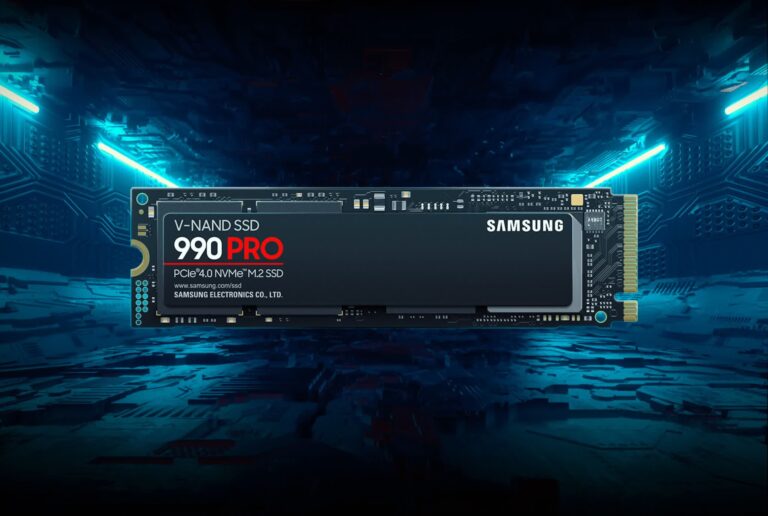
[ad_1]
A hot potato: Solid-state drives can only write a limited amount of data throughout their lifespans, signified by each drive’s “health.” A worrying number of recent reports have emerged of Samsung’s typically lauded 990 Pro SSD losing health far too quickly, and Samsung has been slow to address them.
Users have reported faster-than-normal health degradation in Samsung 990 Pro SSDs for about a month. No one seems to have determined the cause, which affects all drive sizes. Samsung only recently opened an investigation into the matter.
Multiple users on Reddit and overclock.net say that storage utility programs are reporting alarmingly low health numbers for their 990 Pros and shockingly high amounts of written data after only a few weeks of use. Multiple utilities like CrystalDiscInfo and Samsung’s Magician software report the same stats moving more precipitously.
Samsung’s warranty covers the 990 Pro for up to five years or 600 terabytes written (TBW) for the 1TB model and 1,200 TBW for the 2TB model, starting at 100 percent health upon initial installation. Magician and CrystalDiscInfo told one user their 2TB SSD had only 93 percent health left despite having written only about 7TB, which should leave them with over 99 percent health. Others report similar health ratings despite having written even less.
After reading your article, I thought I’d take a look at mine. The results are horrendous! 36% worn out after writing less than 2TB of data? @SamsungUK what is going on? pic.twitter.com/VdzLoEAarN
— Neil Schofield (@neilaschofield) January 22, 2023
At least one user’s drive loses about one percent per week, which could kill the SSD within 18 months. Another lost three percent in one day. One nasty instance on Twitter shows a CrystalDiscInfo results screen with 64 percent remaining after only 2TB of writes (above).
Neowin’s Robbie Khan encountered the issue and sent his SSD to Samsung, hoping techs could uncover the root cause. Samsung returned the drive after a factory reset, which should have restored its health to 100 percent, but it had only 94 percent. Samsung offered to replace the SSD and take Kahn’s to try and replicate the issue.
It’s unclear if the problem stems from software or hardware. There could be a glitch in how the SSDs report their values to health checks. The only commonality between the affected drives is that they are all Windows OS drives, so the problem could also be an operating system bug. Hopefully, Samsung will deliver an official public statement soon.
[ad_2]